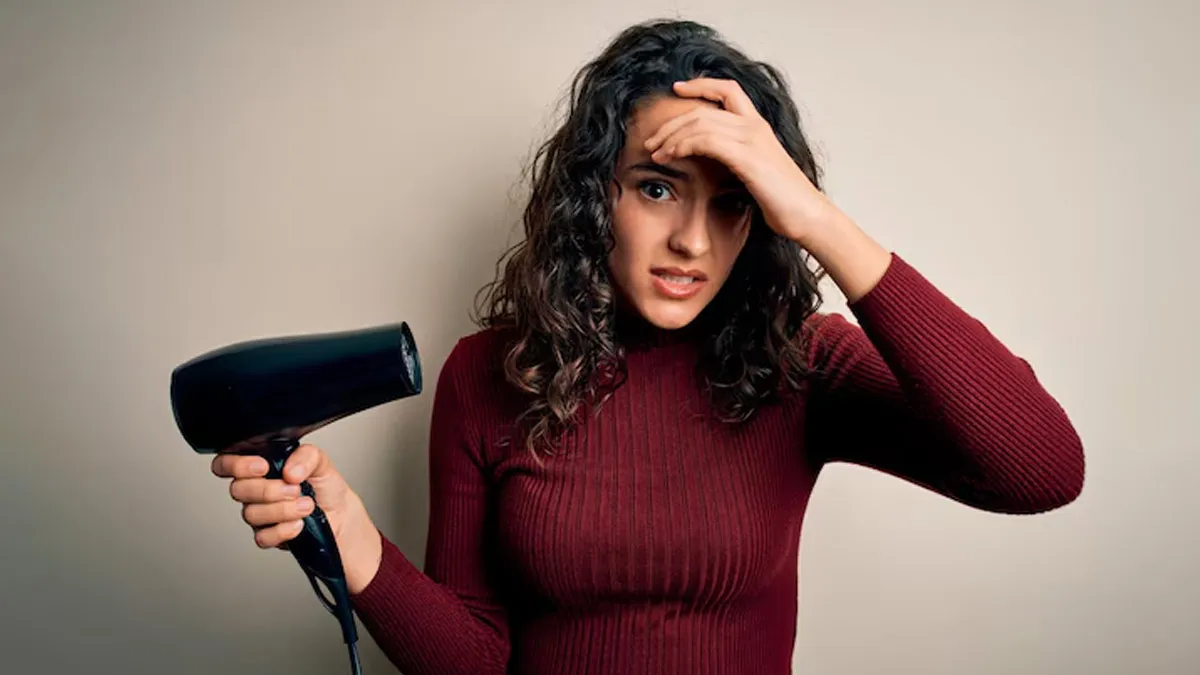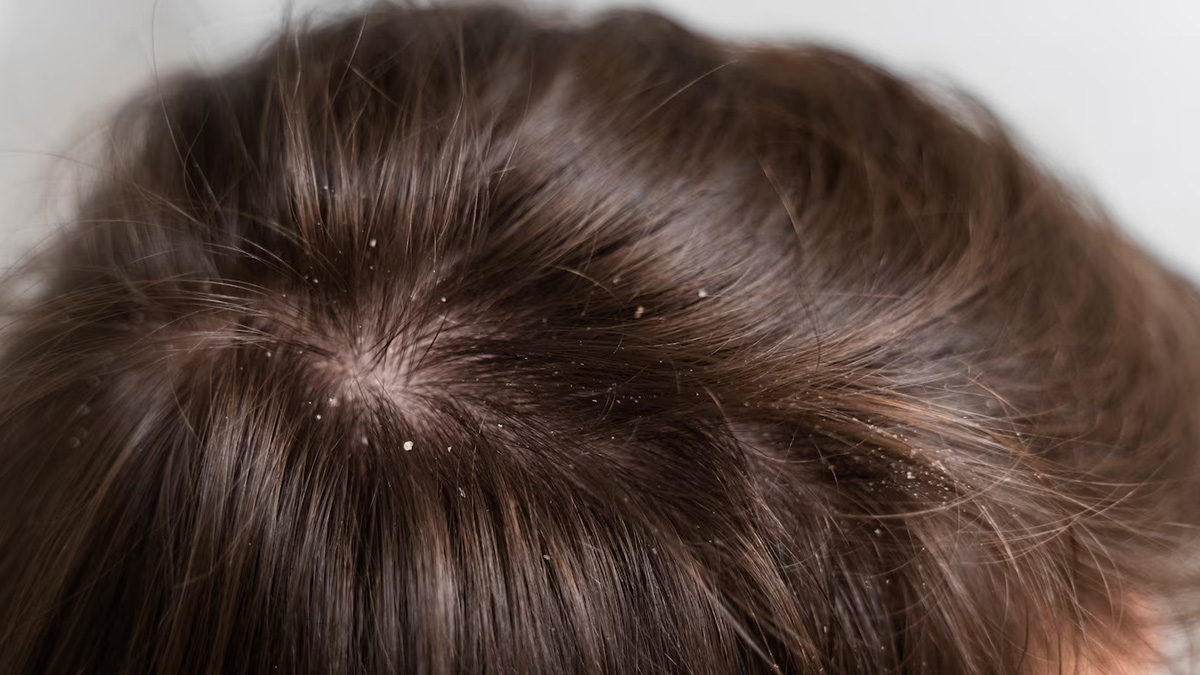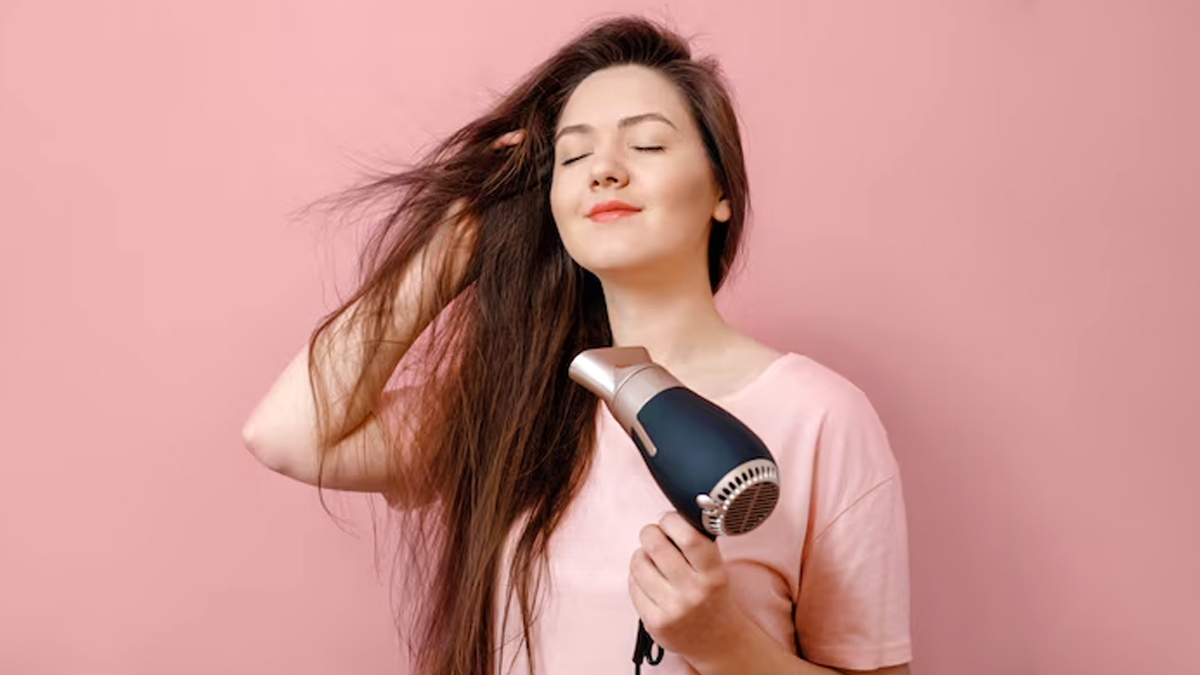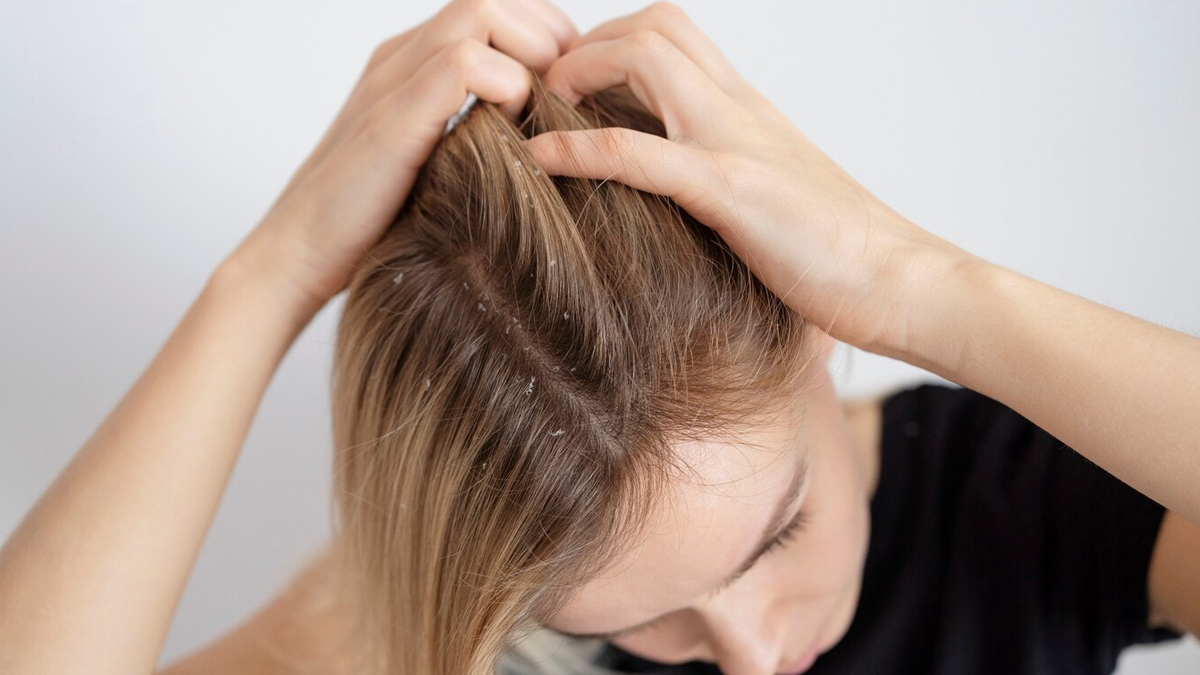
Dandruff can be caused by several factors, including dry skin, oily, irritated scalp, sensitivity to hair-care products, and certain scalp infections. What's interesting is that your daily hair-care routine, for instance how you dry your hair, can also damage your scalp and cause dandruff. In an interaction with the OnlyMyHealth team, Dr Piyusha Bhagde, Founder and Chief Dermatologist, Skin Ethics Clinic, Akola, Maharashtra, explains how and shares what you can do to prevent it.
Table of Content:-
Also Read: Massaging Your Scalp Improves Hair Growth: Fact Or An Old Wives' Tale?
Hair-Drying Habits That Can Cause Dandruff

Drying your hair after a hair wash is important as it helps prevent damage and maintains hair health. Wet hair is more likely to break, and so, drying it properly is essential. However, there are a few things to keep in mind, according to Dr Bhagde.
Overdrying the scalp through frequent blow-drying or rough towel drying can worsen dandruff by creating a dry environment conducive to fungal overgrowth.
Using harsh styling products and techniques can contribute to dandruff by stripping the scalp of its natural oils and moisture, leading to irritation and flaking.
Brushing the hair too hard or too often can create friction on the scalp, leading to irritation and flaking.
Some styling products, especially those with alcohol, can dry out the hair and scalp, making them more susceptible to dandruff.
Signs That Your Hair-Drying Habit Is Damaging Your Scalp

If you’re someone who uses hair-drying tools, then it could be one of the reasons why you have dandruff. Dr Bhagde says, “When you blow dry your hair, you’re also heating up your scalp.
This causes your scalp's natural moisture to evaporate quickly. Plus, you could also be damaging the scalp’s outer layer which acts as a defence to keep essential moisture in.”
Signs of hair damage from a hair dryer include:
- Dryness
- Brittleness
- Split ends
- Hair breakage
- Frizz and flyaways
- Tangled hair and knots
- Loss of natural colour
- Dullness
- Rough texture and difficulty in styling.
These symptoms can be caused by excessive heat exposure from the dryer, which can strip the hair of its natural oils and damage the outer layer.
Also Read: Hair Health: How Does Shikakai Benefit Your Hair?
Air Drying: A Better Option Than Using A Hair Dryer?

The short answer is yes! This is because air drying hair involves letting your hair dry naturally without heat from a blow dryer. This helps:
- Minimise heat damage, reducing dryness and breakage.
- Require minimal effort and time.
- Promote natural texture.
Tips To Dry Your Hair Without Causing Hair Damage And Dandruff
Some of the hair-drying tips to reduce hair damage and dandruff include:
- Squeeze out excess water with a towel first to reduce drying time.
- Consider using a leave-in conditioner to help manage frizz.
- For curly hair, "plopping" (wrapping your hair in a microfibre towel or cotton t-shirt) can help define curls.
- Blow drying (with precautions): if you need to dry your hair quickly or have specific styling needs.
- Apply a heat protectant product before blow drying.
- Start with the lowest heat setting and increase gradually as needed.
- Use a diffuser attachment to evenly distribute airflow and prevent frizz.
- Keep the dryer moving and avoid focusing hot air on one spot for too long.
- Finish with a cool shot to set the style.
Conclusion
While drying your hair is an essential part of your routine, how you do it can influence your scalp health. Overusing heat or being too rough can strip away natural moisture, irritate your scalp, and potentially trigger or worsen dandruff. Choosing gentler methods like air drying and using protective products when blow drying can help maintain both your hair and scalp health. By being mindful of your hair-drying habits, you can reduce damage, prevent dandruff, and keep your hair looking and feeling its best.
Also watch this video
How we keep this article up to date:
We work with experts and keep a close eye on the latest in health and wellness. Whenever there is a new research or helpful information, we update our articles with accurate and useful advice.
Current Version